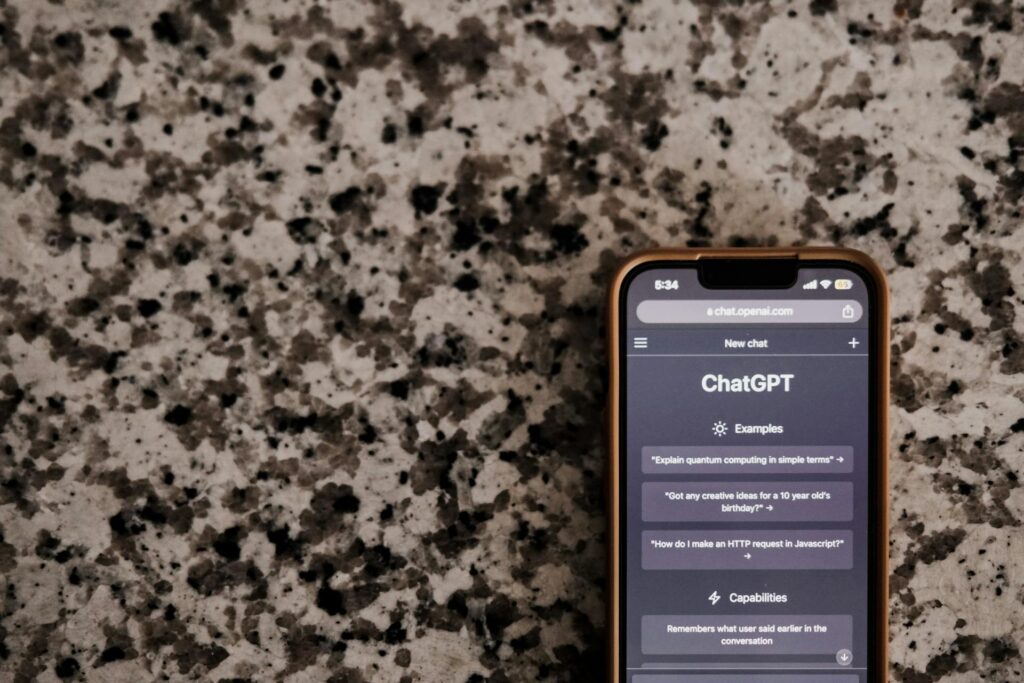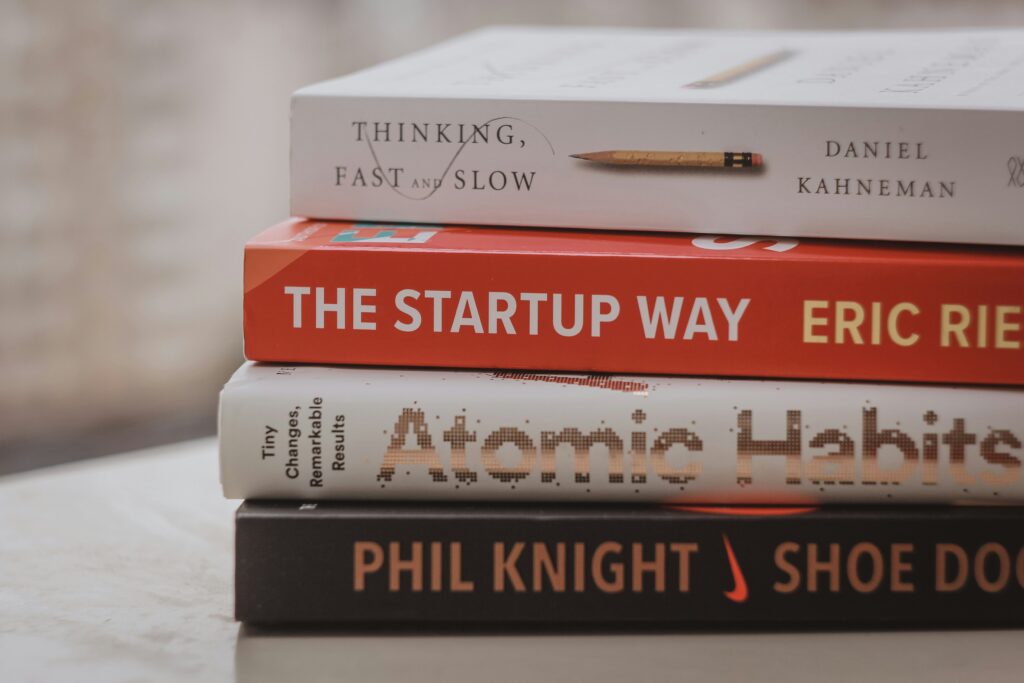We’ve all been there. Your screen’s full of tabs, notifications are going off nonstop, and you’re running around all day. But by the end of it, you’re left wondering what you really got done.
We turn to tech to help keep things under control, right? AI helps us write emails, fix grammar, and summarize long articles. But what if your AI could be more than just an assistant, and actually help you think better?
I use ChatGPT every day, and it’s changed the way I interact with it. It’s become a tool that helps me think more clearly, sparks my creativity, and even improves my relationships.
I’m going to share eight ChatGPT prompts I use all the time now. These have completely changed the way I work and live, and made AI way more helpful than I ever expected.
Contents
- 1 1. Start Your Day with the Motivation Coach
- 2 2. Get a Reality Check with an AI Critic
- 3 3. Manifest Success and Beat Imposter Syndrome
- 4 4. Turn Big Ideas into Actionable Steps
- 5 5. Uncover Hidden Patterns with the Habit Detective
- 6 6. Sharpen Your Pitch with a ‘Shark Tank’ Drill
- 7 7. Level Up with Advice from Your Future Self
- 8 8. Deepen Relationships with Thoughtful Actions
- 9 Your New Thinking Partner
1. Start Your Day with the Motivation Coach

The Prompt: “Tailor my daily schedule to my current mood, energy, and available time.”
We all know how exhausting it can be to just figure out what to do next. That “what should I do now?” decision-making can wear us out before we even get started. This prompt is like having a personal coach who creates a plan that works with your energy, not against it.
Let’s say it’s Monday morning, you’re feeling overwhelmed, and your energy’s low. You’ve got a three-hour block before your first meeting, and you need to tackle a big report, but you’re stuck.
Instead of staring at a blank page, you give ChatGPT the prompt. It might respond with a structured plan like this:
- 09:00 – 09:10: Ease In – “Grab a coffee or tea, no screens. Let’s honor your low energy. It’s okay to start slow.”
- 09:10 – 09:30: One Small Task – “Open the report file. Don’t write yet—just read the brief and organize your folders. Small, low-energy stuff to get you moving.”
- 09:30 – 10:15: Focused Work – “Set a 45-minute timer. Your only goal is to write the executive summary. Don’t worry about anything else.”
- 10:15 – 10:30: Recharge – “Step away from your desk. Walk, stretch, or listen to a song. You need this break.”
This plan provides the structure your brain craves when it’s feeling scattered. It takes the pressure of planning off your shoulders, so you can focus your energy on actually doing the work. If you’re feeling burnt out, this prompt is a great way to ease back into things.
Also Read: I Always Use This ChatGPT Trick to Easily Create PowerPoint Presentations 10x Faster
2. Get a Reality Check with an AI Critic

The Prompt: “Assess my concepts through the lens of a [tech reviewer, literary critic, master cook].”
Honest feedback can be hard to come by. Friends might hold back to spare your feelings, and colleagues could be biased. But an AI? It’s got no agenda and no emotions: it can give you brutally honest, constructive criticism. That’s why I use this prompt every day to test my ideas. It’s a key part of how I stay productive and improve my work.
Let’s say you’ve got an idea for an app: “PlantPal,” which identifies houseplants from a photo and gives you a watering schedule. You ask ChatGPT to evaluate it like a tough venture capitalist.
Here’s the kind of feedback you might get:
- Market Saturation: “The plant identification space is already crowded. What’s your unique angle? A slightly better UI isn’t enough.”
- Monetization: “Your ‘diagnose my sick plant’ feature is interesting, but how sustainable is the AI behind it? Can competitors copy it quickly?”
- Blind Spots: “You haven’t considered community features, which are crucial for engagement in hobbyist apps. Also, who’s training your AI to diagnose plants?”
This kind of no-holds-barred feedback is priceless. It lets you test your ideas in a safe space, without worrying about offending anyone or facing judgment. You can refine your concept privately before it’s ready for the real world.
3. Manifest Success and Beat Imposter Syndrome

The Prompt: “Rewrite this [email, project plan] like I’ve already succeeded.”
The words we use can totally shift how we see ourselves. If you’re dealing with imposter syndrome, your writing might come off as unsure, lots of “maybe,” “I think,” or “just.” This prompt helps you reframe things from a place of confidence, making you sound like you’ve already succeeded.
And it’s not just about sounding confident; it can actually help you feel more confident too!
Consider this hesitant email draft:
- Before: “Hi team, I was hoping we could maybe look into a new marketing strategy for Q4. I think it might be a good idea to explore TikTok. Let me know if you have any thoughts.”
Now, watch what happens when you apply the prompt:
- After: “Team, for Q4, we’re pivoting our marketing strategy to target the TikTok demographic. I’ve outlined the first three campaign ideas and will assign roles by EOD Friday. My projections show a 15% increase in lead generation. Let’s make it happen.”
The second version is direct, confident, and clear. It bridges the gap between your inner doubts and the outer competence you need to lead.
By communicating like you’ve already succeeded, you naturally inspire more trust and buy-in from others. Over time, that feedback will help build real, earned confidence.
Also See: Here Are the Top 15 Highest Paying AI Jobs (Salaries Are Shocking)
4. Turn Big Ideas into Actionable Steps

The Prompt: “Transform this ambiguous concept into an actionable, prioritized list based on impact versus effort.”
Big goals can feel super overwhelming. Take something like “I want to start a podcast”. it’s exciting but also totally paralyzing. You’re probably wondering, “Where do I even begin?”
This prompt breaks that big idea down into bite-sized tasks and helps you prioritize them by what will make the most impact with the least effort. It’s my go-to move whenever I’m launching something new.
You tell ChatGPT your vague idea, and it gives you a list of concrete steps: like choosing a niche, buying equipment, learning to edit, reaching out to guests, and so on. Then it organizes those tasks into a simple Impact vs. Effort matrix.
Low Effort
High Effort
High Impact
1. Define your niche and target audience. 2. Record your first 3 episodes (using your phone). 3. Choose a name and create simple cover art.
1. Build a promotion and guest outreach strategy. 2. Consistently publish weekly episodes. 3. Secure sponsorships.
Low Impact
1. Spend weeks designing the perfect logo. 2. Agonize over the brand’s color palette.
1. Build a custom website before having any listeners. 2. Purchase expensive, professional-grade audio equipment.
The matrix makes it so clear where to start. You tackle the “High Impact, Low Effort” tasks first. Those quick wins give you the momentum to push through the harder, more time-consuming stuff. Suddenly, that giant mountain of tasks becomes a series of small, manageable hills.
5. Uncover Hidden Patterns with the Habit Detective

The Prompt: “Analyze my calendar and spending from the last week and identify any patterns in what I’m inadvertently prioritizing.”
We often don’t realize what we’re actually prioritizing in life. We might say one thing—like, “I want to write a book”. But when we look at how we actually spend our time, it tells a completely different story.
By giving ChatGPT objective data about your life, like your calendar or spending habits, it acts as a neutral mirror, showing you exactly what’s going on behind the scenes. It’s one of the most eye-opening prompts I’ve used for boosting self-awareness.
For example, you could tell ChatGPT:
“My goal is to write a book. This week, I worked 9-5, went to the gym, and watched Netflix for 3 hours every night. I had brunch with friends on Saturday and did chores on Sunday.”
And the analysis you get might look something like this:
“Looking at your schedule, it’s clear that you’re unintentionally optimizing for stress recovery and low-effort entertainment. You’ve effectively prioritized physical health and social connection. However, your goal of ‘writing a book’ receives 0% of your dedicated time. Your evenings are optimized for passive consumption—Netflix—rather than active creation.”
This kind of data-driven feedback can be a real wake-up call. It forces you to look at your habits without any of the emotional story you tell yourself.
Once you see the truth in black and white, you can make the necessary adjustments to align your actions with your real goals.
6. Sharpen Your Pitch with a ‘Shark Tank’ Drill

The Prompt: “Imagine pitching this concept as if you were on Shark Tank.”
Whether you’re pitching a new business or just trying to convince your family to try a new dinner idea, you need to be clear, concise, and persuasive. Using the “Shark Tank” approach forces the AI to craft a pitch that’s all about benefits and impact.
As someone who uses ChatGPT every day, this exercise has really helped me get better at communicating ideas quickly and effectively.
Let’s say you’ve got an idea for a subscription box for artisanal coffee beans. You give the prompt to ChatGPT and this is what you get:
“Sharks, 90% of coffee drinkers have never tasted the top 1% of coffee. Why? Access. We’re ‘Global Grind,’ a curated subscription service delivering exclusive, single-origin beans right to your door. We’re not just selling coffee—we’re offering a world tour for your taste buds. For a $100,000 investment, we’re offering 10% of the company and plan to dominate the $80 billion premium coffee market. So, who’s ready to wake up and smell the profit?”
This exercise forces you to stop talking about the details of your product and start focusing on the benefits. Instead of saying “Here’s what I made,” you learn to say, “Here’s what’s in it for you.” It shifts the perspective from creator to audience, and it’s a game-changer for how you present ideas.
7. Level Up with Advice from Your Future Self

The Prompt: “What minor adjustment could I implement today that my future self would appreciate?”
We’re hardwired for short-term rewards, which makes it tough to stick with habits that pay off later. This prompt cleverly sidesteps that by focusing on small, easy changes that add up over time. It’s a simple but powerful way to boost long-term productivity without feeling overwhelmed.
Instead of suggesting something huge like “run a marathon,” ChatGPT will suggest small, actionable tweaks with big impact:
- Physical Health: “Place a glass of water by your bed tonight. Drink it first thing tomorrow before checking your phone. This adds up to an extra 18 gallons of hydration each year.”
- Mental Health: “Pick one person to say ‘no’ to this week in order to protect your time and energy. This helps you build the habit of setting healthy boundaries.”
- Financial Health: “Find one recurring subscription you don’t use anymore and cancel it. It’s a one-time action that’ll save you money every month.”
This prompt reframes positive changes as gifts to your future self, making the long-term benefits feel more immediate and rewarding. It shifts the focus from instant gratification to the bigger picture, helping you make better choices in the now that your future self will be grateful for.
Also Read: Want to Be Smarter? Read These 11 Books That Reprogram Your Brain
8. Deepen Relationships with Thoughtful Actions

The Prompt: “What’s a simple, thoughtful gesture I could make this week to show a friend I appreciate and see them?”
In our busy lives, good intentions often fall through the cracks. This prompt uses AI not to replace human connection, but to facilitate it. It helps bridge the gap between wanting to be a good friend and actually doing something about it. It’s a surprising reason why I use ChatGPT every day.
You can give it some context: “My friend Mark just started a new, stressful job. He loves history podcasts and is trying to eat healthier.”
ChatGPT will offer you a few personalized suggestions, sorted by effort:
- Low Effort: “Send him a link to a specific history podcast episode with a message: ‘Heard this and thought of you. Hope the new job is going well!’”
- Medium Effort: “Next time you meal prep, make an extra portion of a healthy lunch. Drop it off with a note: ‘One less thing to worry about this week. You got this.’”
This prompt takes the guesswork out of thoughtful gestures. It helps you turn your general feelings of care into specific, easy-to-implement actions, making it more likely that your good intentions will actually become real moments of connection.
Your New Thinking Partner
These eight advanced ChatGPT prompts go far beyond basic tasks. They show that the true power of AI lies in its ability to augment our own humanity.
From my experience, using ChatGPT every day with this kind of intention turns it into something more than just a tool. It helps me break through mental blocks, show up better for the people I care about, and take more intentional action in my life.
How do you use AI to boost your productivity? I’d love to hear your favorite ChatGPT prompts in the comments below, and let me know which of these you’re excited to try first!